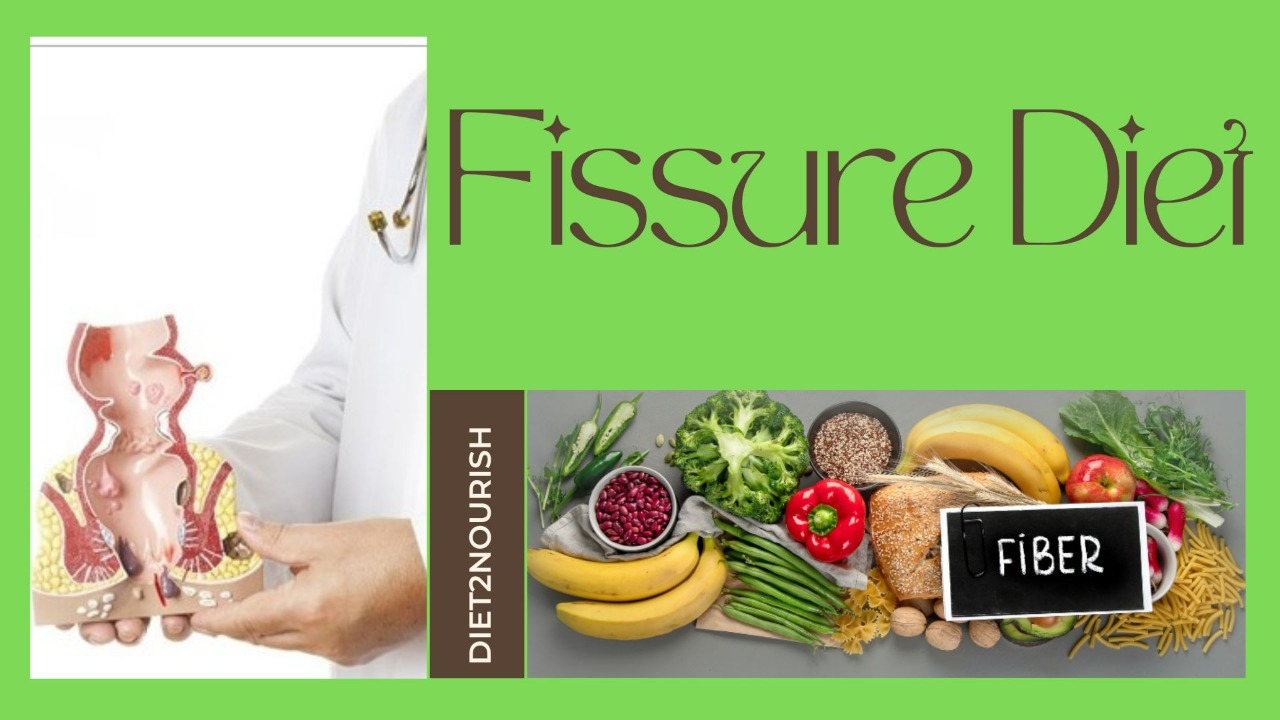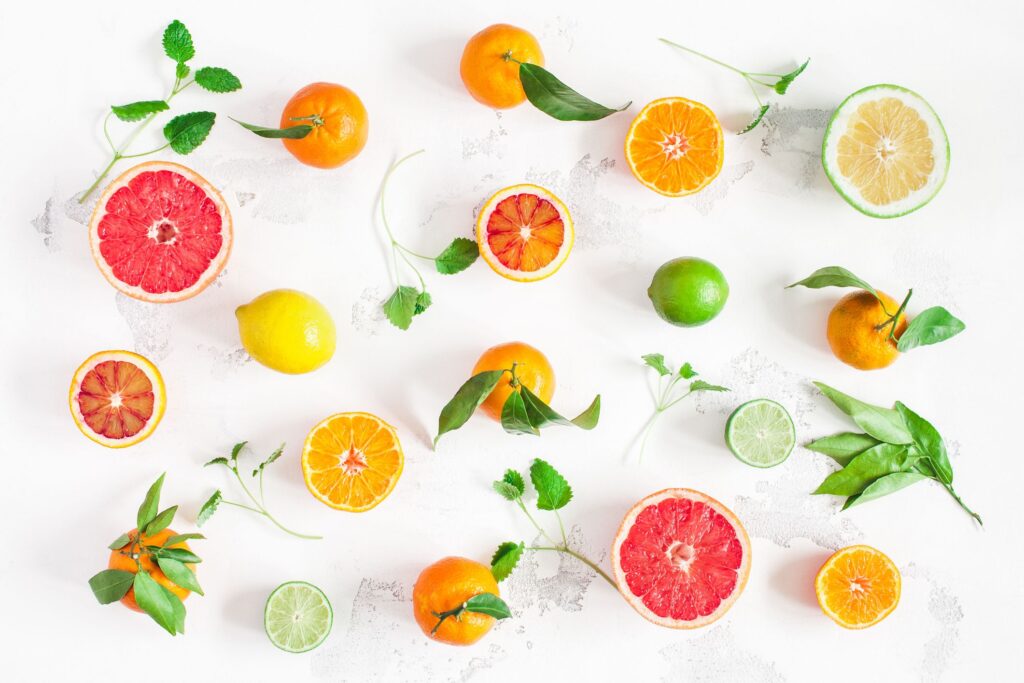Fissure Diet
A fissure means a narrow opening or a crack developing for a considerable length and depth, which may have occurred due to some breaking or separation. But these fissures can happen to us humans too. An anal fissure is one of the most common problems that many of us suffer from. It can be referred to as abnormal breakage or maybe a tear of the skin and its surrounding lining tissues of the anus. Now in such situations, it could be embarrassing and discomfortable as well, because it causes itching, burning, and even pain in the rectum area. There could be many a reason for anal fissures to occur, from trauma to improper bowel movements (passing of large and hard tools) to even anal intercourse, and diarrhea, but the biggest cause can be found in our diet. Foods that are low in fiber, a diet high in salt, continued consumption of liquor, and too much caffeine can all be responsible and the answer to it is a fissure diet.
What is a fissure diet?
Adapting to a proper fissure diet can help in healing the tear better, relieve pain and discomfort, and even help avoid surgery.
The prime element of a fissure diet is fiber. Anal fissure dietary fiber-rich foods help improve the digestion process, easing constipation and smoothening our bowel movements. The diet also emphasizes the intake of fluids as fluids are the best way forward to heal and avoid any further occurrences of fissures in the future. These fluids make our stool soft, leading to a smoother passage through the anal canal.
Foods that cure fissure
An anal fissure can be a difficult and painful condition in any position – sitting or standing, but some foods can lessen the symptom and heal the condition. Here is a list of certain foods that cure fissures:
Fresh fruits and vegetables
Include a wide range of fresh fruits and vegetables in your daily diet. Certain fruits like oranges and lemons have vitamin C, and citrus fruits are loaded with antioxidants, which reduce flare-ups and inflammation happening in the anal tissue during anal fissures. Bananas on the other hand have a high content of pectin, resistant starch, and fiber. Watermelon is also a great addition for its numerous health benefits, especially high-water contents and nutrients like magnesium and vitamin A and C. Apples are good to add bulk to our stool, helping during passing. Papayas have the enzyme papain, which strengthens our digestion process. Being rich in fiber and water, it prevents constipation, thereby promoting regularity. Coconuts are rich in fibers and help in bulking the stool, supporting better bowel regularity, and keeping the digestive system working fine and stay healthy.
Vegetables like broccoli and carrots are loaded with fiber. These vegetables have high cell-protecting antioxidants, calcium, and vitamin E and K. Root vegetables provide our bodies with resistant starch, that enables us to pass softer stool and avoid pains, straining, and burns while passing. Bell peppers are a great addition to our diet during fissures. It helps in softening the stool, thereby lessening the need to strain while we are excreting.
Whole grains
As mentioned earlier, dietary fiber is the core of the fissure diet. Whole grains are rich sources of insoluble fibers (the fiber that our body cannot digest), adding volume to our stool, and aiding us in excreting the stool with much ease and less pain that comes with fissures. Some of the best examples of high-fiber foods for fissures are brown rice (which targets constipation, improves bowel movements, and protects against a future occurrence of fissures), oats, barley, and quinoa.
Lentils
Legumes and lentils like chickpeas and beans are rich sources of dietary fiber. Eating good amounts of fibers our stool stays softer, avoiding chances of constipation. It also prevents our stool from being too liquid, causing diarrhea. The soft and voluminous stool is easy to pass during anal fissures.
Probiotics
Probiotic-rich foods like curd and buttermilk have been used for ages for digestive tract health. These foods also promote pain-free normal bowel movements. They are good against constipation and harming the fissures.
Ghee
Ghee is an ayurvedic remedy against anal fissures. Ghee has butyrate acid that improves digestion, prevents and treats gastrointestinal disorders, and prevents diarrhea and IBS (irritable bowel syndrome). It works as a natural laxative that promotes smooth bowel movements.
Foods to avoid in the fissure
Anal fissures are very uncomfortable and our diet plays a crucial role in getting things under control. We might not prevent and control fissures entirely through diet but it can go a long way and get more comfortable if we believe in the fact that there are certain foods to avoid in fissures. These are:
Processed, frozen, and fried foods:
All of these – processed, frozen, and fried foods are low in fiber and nutrient values. When trying to avoid constipation, it is better to stay away from these types of foods.
Refined white flour:
Foods like white bread, bagels, and pasta are all made with white refined flour that forms a sticky paste after being consumed and slows down our bowel movement, causing constipation, itching, and burning in the fissure.
Spicy foods:
Spicy foods including pickles can cause burning in the anal cavity while passing and cause issues with the digestive tract if consumed in higher volumes. To treat anal fissures, avoid spicy foods.
Added sugar:
Pasta, cookies, doughnuts, and cakes are all high-sugary foods that are low in fiber and fluids, but are high in fats. We all should avoid all such foods and concentrate on high-fiber snacks and foods like fresh fruits and vegetables.
Dairy products:
Dairy products like cheese, and ice creams can cause problems with our digestive tract as these foods are low in fiber and high in fats. These foods are harder to digest.
Diet after a fissure surgery
As what we eat can influence our health, it is very critical to plan your diet after fissure surgery in the right way. Your diet must include the following:
- Green leafy vegetables for better fiber intake like spinach, green onions, beet greens, and turnip greens. You must also include broccoli, Brussel sprouts, and sweet potatoes.
- Beans and lentils. Add brans.
- Substitute white rice with brown rice.
- Include more high-fiber foods like quinoa, oats, and flax seeds.
- Add a cup of fruit salad to your daily diet including fruits like bananas, berries, and apples.
- Choose healthy oils like olive and canola oil. These oils help to lubricate the stool so that it can pass easily.
- Avoid meat and choose chicken and fish.
- Take fiber supplements like isabgol and others. This adds bulk to the stool and makes it easier to pass.
Indian diet plan for fissure
The foods we eat have a great impact on the way and how quickly we heal from anal fissures. It can relieve us from the pain and heal the tear quickly and also avoid surgery. Here is a 7-day Indian diet plan for fissures that you can refer to:
MONDAY
For breakfast:
4 Idly+ 1/2 cup sambhar+1 tsp coconut chutney+1 glass milk/ 1 cup tea
For the mid-meal:
1 glass of apple juice
For lunch:
1.5 cup rice + fish curry + potato and carrot ki sabji.
For evening snacks:
White bread (2-3 slices) toast with 1 glass of milk.
For dinner:
1 cup rice + 1/2 cup cauliflower curry + 1 glass buttermilk.
TUESDAY
For breakfast:
1/2 cup oats in 1 glass of milk.
For the mid-meal:
1 glass (strawberry or blueberry) milkshake.
For lunch:
1.5 cup rice + 1/2 cup sambhar + 1/2 cup methi sabji + 1 glass butter milk.
For evening snacks:
1 cup chivda + 1 cup green tea/milk tea.
For dinner:
1 cup rice + 1/2 cup bhindi curry + 1 glass buttermilk.
WEDNESDAY
For breakfast:
2 dosas + 1/2 cup sambhar + 1tsp methi chutney +1 glass milk/ 1 cup tea.
For the mid-meal:
A small bunch of green grapes.
For lunch:
1.5 cup rice + aloo brinjal sabji + 1/2 cup tomato dal + 1 glass buttermilk.
For evening snacks:
1/2 cup cornflakes with 150 ml milk.
For dinner:
1 cup rice + lauki curry+1 glass buttermilk.
THURSDAY
For breakfast:
Toasted bread (3-4 slices) with jam and butter+1 glass milk/1 cup tea.
For the mid-meal:
1 glass banana milkshake
For lunch:
1.5 cup rice+1/2 cup rasam+1/2 cup arbi ki sabji + 1 glass buttermilk.
For evening snacks:
2-3 Marie biscuits+1 glass milk/1 cup tea.
For dinner:
1 cup rice+1/2 cup palak curry+1 glass buttermilk.
FRIDAY
For breakfast:
1.5 cup lemon rice+2 tsp tomato chutney+1 glass milk/1 cup tea.
For the mid-meal:
1 glass of musk melon juice.
For lunch:
1.5 cup rice+1 portion(100gm) grilled/stewed fish+1/2 cup capsicum curry.
For evening snacks:
Bread omelet (2 slices of white bread; 1 egg omelet).
For dinner:
1 cup rice+ 1/2 cup ridge gourd(tori) curry+1 glass buttermilk.
SATURDAY
For breakfast:
2 parathas (aloo/gobhi/methi) with 2 tsp green chutney+1 glass milk/ 1 cup tea.
For the mid-meal:
1 glass of pomegranate juice.
For lunch:
1.5 cups rice+1/2 cup methi buttermilk+1/2 cup yellow cucumber sabji.
For evening snacks:
Avocado milkshake- 1 glass.
For dinner:
1 cup rice+1/2 cup raw banana curry+1 glass buttermilk.
SUNDAY
For breakfast:
Egg sandwich with 4 white bread slices+2 boiled eggs+1 glass milk/ 1 cup tea.
For the mid-meal:
1 glass of watermelon juice.
For lunch:
1.5 cup rice+1/2 cup skin out chicken(100gm) curry+1/2 cup ivy gourd (parmal) sabji+1 glass buttermilk.
For evening snacks:
1 cup murmura+1 glass milk/1 cup tea.
For dinner:
1 cup rice+1/2 cup tinda sabji.
Do’s and don’ts during anal fissure
Do’s:
- Always include fiber-rich foods in all your meals.
- Avoid dehydration and drink plenty of water (10 -12 glasses per day).
- Perform moderate physical activities and exercise regularly for 30 minutes at least daily. It will improve your blood flow to the organs and promote regular bowel movements.
Don’ts:
- Do not strain your bowel. It can lead to the worsening of the fissure.
- Avoid constipation by avoiding the urge to pass.
- Avoid the intake of alcohol and caffeine.
- Do not use laxatives more often.
- Do take heavy meals.
Frequently Asked Questions (FAQs)
Anal fissures usually heal in a few weeks, but one of the steps that you can take to speed up the process is to avoid constipation. To have softer bowel movements, make sure to eat enough fiber. Eat plenty of fruits, vegetables, whole grains, and legumes, and make sure you drink plenty of water.
Additionally, keep improving your diet and avoid eating the foods that worsen the symptoms like added sugar, refined flour, processed, fried, and spicy foods. It is also very important that you exercise regularly to keep your digestive tract active and moving.
Your diet and lifestyle modifications can help you reduce pain and all the complications associated with anal fissures. Fluids play an important role in the healing and recovery process. Drinking fluids keeps you away from constipation and softens the stool, making it easier to pass. Some of the best juices to have during anal fissure are:
apple juice, watermelon juice, muskmelon juice, grape juice, and pomegranate juice.


